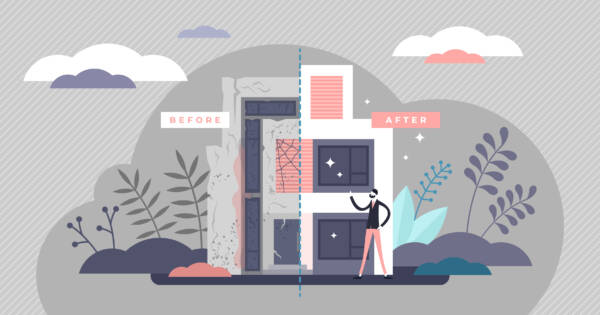Last year I become a first time homeowner — exciting, right? At the same time, I also then started managing my first rental property. You see, while I was in the process of buying a home I decided I’d split the cost of my mortgage by also seeking out roommates. Fast forward a bit, and I have found a few people to live with. However, I have also found myself up against a common challenge many property managers — and roommates in general — have: late rent!
To solve this dilemma, I turned to a few of my financial mentors who also own rental properties. I asked them what their suggestions on things like finding good tenants and (most importantly) getting them to pay rent on time. Most of them said the best way to handle a late payer is by putting a late fee in place (e.g. $25 for each week late).
To me, though, charging a person who was obviously already struggling to pay rent was a little counter-intuitive. Instead, I started thinking about what incentives a tenant might naturally have to pay rent on time, without having to resort to an extra fine. I came up with two:
- Pay rent on time to avoid conflicts with either their property manager or roommates.
- Pay rent on time in order to maintain a good relationship with the manager for a possible lease renewal.
The problem is that many of these depend on how “good” a person is. They don’t actually put a financial incentive in front of the tenant for paying on time (or early). So I decided to impose what we will refer to as an Late Avoidance Incentive (LAI).
In the end, I decided that if my roommates paid their rent before the 1st of each month, they would receive $25 off their normal rent. For further peace of mind, I decided that all utilities (washer, dryer, internet, and cable) would be included in their flat rent price.
Since these two changes in policy have been enacted, there actually has been a small culture change in my house. Not only has incidents of late rent gone way down (read: zero), one of the people living with me has even tried to pay me several months in advance in order to save hundreds of dollars over the course of a year.
So let’s do a little cost/benefit analysis:
Cost:
- I receive $25 a month less from tenets.
- I don’t receive extra compensation for late rent.
Benefit:
- Rarely do I have to bug tenets to pay rent.
- I usually have money to pay the mortgage payment well before it’s due.
- Roommates feel that I am looking out for their best interests.
A year into my new home ownership system and I have yet to receive a late payment from roommates. Not even by a day. That’s not to say my system is perfect, or even that I am even getting the best deal. But the money is steady. Not having to awkwardly chase people for rent money has a value too. I would recommend, however, that if you are going to cover utilities (or any bills that aren’t fixed), that you make sure you put a cap on the amount you are paying as the homeowner.








